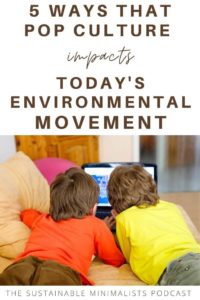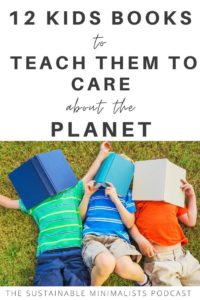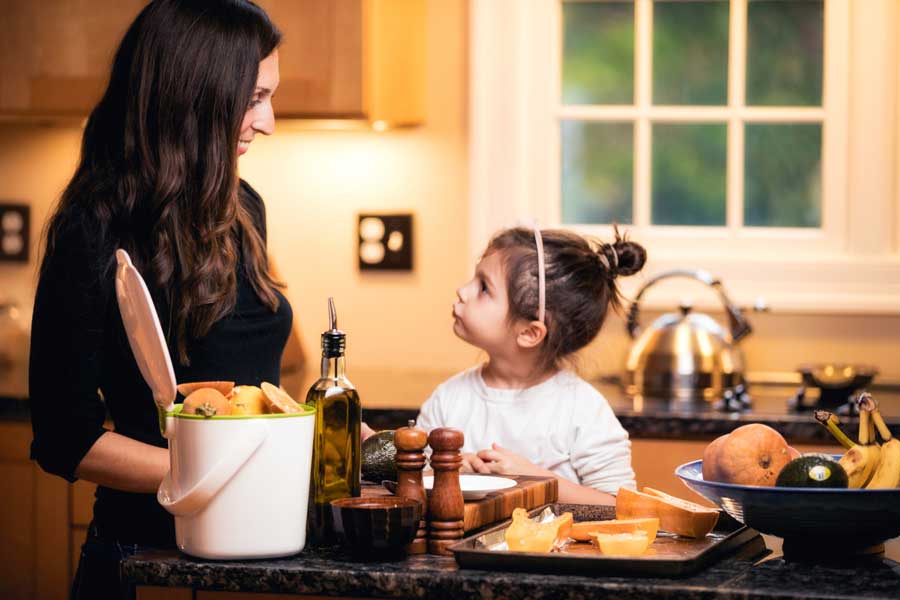Pop Culture and the Environmental Movement Today
Pop Culture and the Environmental Movement Today
In recent years, pop culture has raised important questions about the environmental movement today, and people are listening. Because while it can be easy to dissociate from media coverage surrounding global warming, climate change, and environmental racism, it’s much harder to do so when pop culture pushes the narrative.
The relationship between popular culture and popular opinion is circular, and so a great way to jumpstart conversations with children and other loved ones is to do so through a television show, a book, a movie, or a song that both hits the issue head-on and pulls at the heartstrings.
Today I’m speaking with author Jessica Harris. Jessica felt prompted to write a children’s book about plastic pollution after realizing that The Great Pacific Garbage Patch isn’t common knowledge: If adults don’t know about plastic’s problems, how can they teach their kids? Jessica and I discuss the reasons why pop culture—not media coverage!—may be the best means by which to both broaden and diversify the environmental movement today; we suggest solutions for engaging older children in the conversation, too.
Here’s a preview of this week’s episode:
[9:30] Why, exactly, pop culture is really darn important for the environmental movement today
[12:30] How to talk to older kids about global warming and climate change: What research says
[18:15] Why and how to focus on solutions instead of ruminating on the magnitude of the problem
[25:00] The 7 areas that have made our world and shaped our future, plus sustainability concerns associated with cheap goods
[26:00] The promises associated with a circular economy (as opposed to a linear one)
Resources mentioned in the episode:
- Enter to win a signed copy of Bernie’s Escape from Ong Island here!
- Extension activities to accompany Bernies Escape From Ong Island
- A big thank you to Cleaner Cloths for sponsoring this week’s episode!
- Harris Energy Solutions on Instagram
Other pop culture resources:
Children’s Books:
- The problems with plastic: Bernie’s Escape from Ong Island
- A gentle introduction to climate change: The Lonely Polar Bear by Khoa Le
- Jane Goodall’s life and advocacy: The Watcher by Jane Goodall
- How to help endangered species: Don’t Let Them Disappear by Chelsea Clinton
- The importance of bees: Bee & Me by Alison Jay
- Why we need trees: The Great Kapok Tree by Lynne Cherry
- Planting and growing: Miss Maple’s Seeds by Eliza Wheeler
- Finding eco-friendly solutions: Kate, Who Tamed The Wind by Liz Garton Scanlon and Lee White
- Fostering relationships with nature: Red Knit Cap Girl and the Reading Tree by Naoko Stoop
- Why recycling matters: One Plastic Bag by Miranda Paul
- Conserving water: We Are Water Protectors by Carole Lindstrom
- Making an eco-difference through teamwork: Follow The Moon Home by Phillipe Cousteau and Deborah Hopkinson
- Avatar
- Wall-E
- Blue Planet
- Captain Planet and the Planeteers
- Ferngully
- Planet Earth (BBC series)
- Happy Feet
- I am Greta
- Police Patrol
* Want more shows like this one? Check out #0134: Raising Good Humans With Minimalist Parenting Guidance.
* Join our (free!) community here.
* Find your tribe. Sustainable Minimalists are on Facebook, Instagram, Pinterest, and now on Clubhouse @steph-seferian.
Podcast: Play in new window | Download



